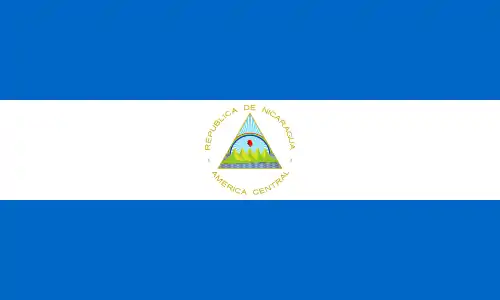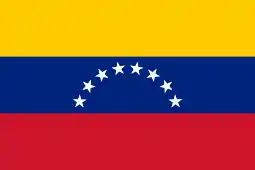Supreme audit institution
A supreme audit institution is an independent national-level institution which conducts audits of government activities.[1][2] Most supreme audit institutions are established in their country's constitution, and their mandate is further refined in national legislation.[3] Supreme audit institutions play an important role in providing oversight and accountability in a country by monitoring the use of public funds and reviewing the quality and accuracy of government financial reporting.[4] They also contribute to anti-corruption efforts.[5] Depending on the country, a supreme audit institution may be called a court of audit (common in Europe and its former colonies), auditor-general (common in the Anglosphere) or the board of audit (in some Asian countries). Nearly every supreme audit institution in the world is a member of the International Organization of Supreme Audit Institutions, which works to establish and disseminate international standards and good practices.[6]
List of supreme audit institutions
 Afghanistan: Supreme Audit Office
Afghanistan: Supreme Audit Office Albania: State Supreme Audit (Albania)
Albania: State Supreme Audit (Albania) Algeria: Cour des Comptes
Algeria: Cour des Comptes Andorra: Tribunal de Comptes
Andorra: Tribunal de Comptes Angola: Tribunal de Contas de Angola
Angola: Tribunal de Contas de Angola Argentina: Auditoría General de la Nación
Argentina: Auditoría General de la Nación Armenia: Chamber of Audit
Armenia: Chamber of Audit.svg.png.webp) Australia: Australian National Audit Office
Australia: Australian National Audit Office Austria: Rechnungshof
Austria: Rechnungshof Azerbaijan: Chamber of Accounts
Azerbaijan: Chamber of Accounts Bahamas: Office of the Auditor General
Bahamas: Office of the Auditor General Bahrain: National Audit Office
Bahrain: National Audit Office Bangladesh: Comptroller and Auditor General
Bangladesh: Comptroller and Auditor General Barbados: Auditor General's Office
Barbados: Auditor General's Office Belarus: State Control Committee
Belarus: State Control Committee.svg.png.webp) Belgium: Court of Audit of Belgium
Belgium: Court of Audit of Belgium Belize: The Office of the Auditor General
Belize: The Office of the Auditor General Benin: Chambre des Comptes de la Cour Suprême
Benin: Chambre des Comptes de la Cour Suprême Bhutan: Royal Audit Authority
Bhutan: Royal Audit Authority Bolivia: Contraloría General del Estado
Bolivia: Contraloría General del Estado Botswana: Office of the Auditor General
Botswana: Office of the Auditor General Brazil: Tribunal de Contas da União
Brazil: Tribunal de Contas da União Bulgaria: Chamber of Audit
Bulgaria: Chamber of Audit Cape Verde: Tribunal de Contas
Cape Verde: Tribunal de Contas Cambodia: National Audit Authority of Cambodia
Cambodia: National Audit Authority of Cambodia.svg.png.webp) Canada: Auditor General of Canada
Canada: Auditor General of Canada Central African Republic: Inspection Général d’État
Central African Republic: Inspection Général d’État Chile: Comptroller General of Chile
Chile: Comptroller General of Chile China: National Audit Office
China: National Audit Office Colombia: Contraloria General de la República
Colombia: Contraloria General de la República Comoros: Cour Suprême – Section des Comptes des Comores
Comoros: Cour Suprême – Section des Comptes des Comores Costa Rica: Contraloria General de la República
Costa Rica: Contraloria General de la República Ivory Coast: Cour des Comptes de Côte d’Ivoire
Ivory Coast: Cour des Comptes de Côte d’Ivoire Croatia: Drzavni Ured za Reviziju
Croatia: Drzavni Ured za Reviziju Cuba: Contraloría General de la República de Cuba
Cuba: Contraloría General de la República de Cuba Cyprus: Audit Office of the Republic
Cyprus: Audit Office of the Republic Czech Republic: Supreme Audit Office
Czech Republic: Supreme Audit Office Democratic Republic of the Congo: Cour des Comptes
Democratic Republic of the Congo: Cour des Comptes Egypt: Central Auditing Organization
Egypt: Central Auditing Organization Eritrea: Office of the Auditor General
Eritrea: Office of the Auditor General Europe: European Court of Auditors
Europe: European Court of Auditors Fiji: Office of the Auditor General
Fiji: Office of the Auditor General Finland: National Audit Office of Finland
Finland: National Audit Office of Finland France: Court of Audit
France: Court of Audit Gabon: Cour des Comptes
Gabon: Cour des Comptes Gambia: National Audit Office
Gambia: National Audit Office Ghana: Ghana Audit Service
Ghana: Ghana Audit Service Germany: Bundesrechnungshof
Germany: Bundesrechnungshof Georgia: State Audit Office of Georgia
Georgia: State Audit Office of Georgia Greece: Court of Audit
Greece: Court of Audit Grenada: Audit Department
Grenada: Audit Department Guatemala: Contraloría General de Cuentas
Guatemala: Contraloría General de Cuentas Guinea: Cour des Comptes
Guinea: Cour des Comptes Guinea-Bissau: Tribunal de Contas
Guinea-Bissau: Tribunal de Contas Guyana: The Audit Office of Guyana
Guyana: The Audit Office of Guyana Haiti: Cour Supérieure CCA
Haiti: Cour Supérieure CCA Honduras: Tribunal Superior de Cuentas
Honduras: Tribunal Superior de Cuentas Hungary: Allami Számvevöszék
Hungary: Allami Számvevöszék Iceland: Rikisendurskodun
Iceland: Rikisendurskodun India: Comptroller and Auditor General of India
India: Comptroller and Auditor General of India Indonesia: Audit Board of Indonesia
Indonesia: Audit Board of Indonesia Iran: Supreme Audit Court
Iran: Supreme Audit Court Iraq: Federal Board of Supreme Audit
Iraq: Federal Board of Supreme Audit Ireland: Comptroller and Auditor General
Ireland: Comptroller and Auditor General Israel: State Comptroller's Office
Israel: State Comptroller's Office Italy: Court of Audit
Italy: Court of Audit Jamaica: Audit Department
Jamaica: Audit Department Japan: Board of Audit
Japan: Board of Audit Jordan: Audit Bureau of Jordan
Jordan: Audit Bureau of Jordan Kazakhstan: Accounts Committee
Kazakhstan: Accounts Committee Kenya: Kenya National Audit Office
Kenya: Kenya National Audit Office Kiribati: Kiribati National Audit Office
Kiribati: Kiribati National Audit Office Kosovo: National Audit Office of Kosovo
Kosovo: National Audit Office of Kosovo Kuwait: State Audit Bureau
Kuwait: State Audit Bureau Kyrgyzstan: The Accounts Chamber of the Kyrgyz Republic
Kyrgyzstan: The Accounts Chamber of the Kyrgyz Republic Laos: State Audit Organization
Laos: State Audit Organization Latvia: Latvijas Republikas Valsts kontrole
Latvia: Latvijas Republikas Valsts kontrole Lebanon: Cour des Comptes
Lebanon: Cour des Comptes Lesotho: Office of the Auditor General
Lesotho: Office of the Auditor General Liberia: General Auditing Commission
Liberia: General Auditing Commission Libya: Libyan Audit Bureau
Libya: Libyan Audit Bureau Liechtenstein: Finanzkontrolle des Fürstentums Liechtenstein
Liechtenstein: Finanzkontrolle des Fürstentums Liechtenstein Lithuania: Valstybės kontrolė
Lithuania: Valstybės kontrolė Luxembourg: Cour des Comptes
Luxembourg: Cour des Comptes Madagascar: Cour des Comptes
Madagascar: Cour des Comptes Malawi: National Audit Office
Malawi: National Audit Office Malaysia: National Audit Department
Malaysia: National Audit Department Maldives: Auditor General's Office
Maldives: Auditor General's Office Mali: Contrôle Général des Services Publics
Mali: Contrôle Général des Services Publics Malta: National Audit Office
Malta: National Audit Office Marshall Islands: Office of the Auditor General
Marshall Islands: Office of the Auditor General Mauritania: Cour des Comptes de la République Islamique de Mauritanie
Mauritania: Cour des Comptes de la République Islamique de Mauritanie Mauritius: National Audit Office
Mauritius: National Audit Office Mexico: Auditoría Superior de la Federación de México
Mexico: Auditoría Superior de la Federación de México Federated States of Micronesia: Office of the Public Auditor
Federated States of Micronesia: Office of the Public Auditor Moldova: Curtea de Conturi
Moldova: Curtea de Conturi Monaco: Commission Supérieure des Comptes
Monaco: Commission Supérieure des Comptes Mongolia: Mongolian National Audit Office
Mongolia: Mongolian National Audit Office Montenegro: State Audit Institution of Montenegro
Montenegro: State Audit Institution of Montenegro Morocco: Cour des Comptes
Morocco: Cour des Comptes Mozambique: Tribunal Administrativo
Mozambique: Tribunal Administrativo Namibia: Office of the Auditor-General
Namibia: Office of the Auditor-General Nauru: Department of Audit
Nauru: Department of Audit Myanmar: Office of the Auditor General
Myanmar: Office of the Auditor General Nepal: Office of the Auditor General
Nepal: Office of the Auditor General Netherlands: Court of Audit
Netherlands: Court of Audit New Zealand: Office of the Auditor-General
New Zealand: Office of the Auditor-General Nicaragua: Consejo Superior de la Contraloría General
Nicaragua: Consejo Superior de la Contraloría General Niger: Cour des comptes
Niger: Cour des comptes Nigeria: Office of the Auditor General for the Federation
Nigeria: Office of the Auditor General for the Federation North Macedonia: Drzaven zavod za revizija
North Macedonia: Drzaven zavod za revizija Norway: Office of the Auditor General of Norway
Norway: Office of the Auditor General of Norway Oman: State Audit Institution
Oman: State Audit Institution Pakistan: Auditor General of Pakistan
Pakistan: Auditor General of Pakistan Palau: Office of the Public Auditor
Palau: Office of the Public Auditor Palestine: State Audit and Administrative Control Bureau
Palestine: State Audit and Administrative Control Bureau Panama: Contraloría General de la República de Panamá
Panama: Contraloría General de la República de Panamá Papua New Guinea: Auditor General's Office
Papua New Guinea: Auditor General's Office Paraguay: Contraloría General de la República
Paraguay: Contraloría General de la República Peru: Contraloria General de la República
Peru: Contraloria General de la República Philippines: Commission on Audit of the Philippines
Philippines: Commission on Audit of the Philippines Poland: Supreme Audit Office
Poland: Supreme Audit Office Portugal: Court of Auditors
Portugal: Court of Auditors Qatar: State Audit Bureau
Qatar: State Audit Bureau Republic of the Congo: Cour des Comptes et de Discipline Budgétaire
Republic of the Congo: Cour des Comptes et de Discipline Budgétaire Romania: Court of Audit
Romania: Court of Audit Russia: Accounts Chamber of Russia
Russia: Accounts Chamber of Russia Rwanda: Office of the Auditor General
Rwanda: Office of the Auditor General Saint Kitts and Nevis: The Audit Office
Saint Kitts and Nevis: The Audit Office Saint Lucia: Office of the Director of Audit
Saint Lucia: Office of the Director of Audit Samoa: Samoa Audit Office
Samoa: Samoa Audit Office São Tomé and Príncipe: Tribunal de Contas
São Tomé and Príncipe: Tribunal de Contas Saudi Arabia: General Auditing Bureau
Saudi Arabia: General Auditing Bureau Senegal: Cour des Comptes
Senegal: Cour des Comptes Serbia: Drzavna revizorska institucija
Serbia: Drzavna revizorska institucija Seychelles: The Audit Department
Seychelles: The Audit Department Sierra Leone: Audit Service Sierra Leone
Sierra Leone: Audit Service Sierra Leone Singapore: Auditor General's Office
Singapore: Auditor General's Office Slovakia: Najvyšši kontrolný úrad Slovenskej republiky
Slovakia: Najvyšši kontrolný úrad Slovenskej republiky Slovenia: Court of Audit of Slovenia
Slovenia: Court of Audit of Slovenia Solomon Islands: Office of the Auditor General
Solomon Islands: Office of the Auditor General Somalia: Office of the Auditor General
Somalia: Office of the Auditor General South Africa: Auditor-General of South Africa
South Africa: Auditor-General of South Africa South Korea: Board of Audit and Inspection
South Korea: Board of Audit and Inspection South Sudan: National Audit Chamber
South Sudan: National Audit Chamber Spain: Court of Auditors
Spain: Court of Auditors Sri Lanka: National Audit Office
Sri Lanka: National Audit Office Saint Vincent and the Grenadines: Audit Office
Saint Vincent and the Grenadines: Audit Office Sudan: National Audit Chamber
Sudan: National Audit Chamber Suriname: Rekenkamer van Suriname
Suriname: Rekenkamer van Suriname Sweden: Swedish National Audit Office
Sweden: Swedish National Audit Office Switzerland: Eidgenössische Finanzkontrolle
Switzerland: Eidgenössische Finanzkontrolle Syria: The Central Organization of Financial Control
Syria: The Central Organization of Financial Control Taiwan: Control Yuan
Taiwan: Control Yuan Tajikistan: Accounts Chamber of the Republic of Tajikistan
Tajikistan: Accounts Chamber of the Republic of Tajikistan Tanzania: National Audit Office
Tanzania: National Audit Office Thailand: State Audit Office of the Kingdom of Thailand
Thailand: State Audit Office of the Kingdom of Thailand Timor-Leste: Tribunal de Recurso
Timor-Leste: Tribunal de Recurso Togo: La Cour des Comptes
Togo: La Cour des Comptes Tonga: Audit Department
Tonga: Audit Department Trinidad and Tobago: Auditor General's Department
Trinidad and Tobago: Auditor General's Department Tunisia: Cour des Comptes
Tunisia: Cour des Comptes Turkey: Court of Accounts
Turkey: Court of Accounts Turkmenistan: Office of the Auditor General of Turkmenistan
Turkmenistan: Office of the Auditor General of Turkmenistan Tuvalu: Office of the Auditor General
Tuvalu: Office of the Auditor General Uganda: Office of the Auditor General
Uganda: Office of the Auditor General Ukraine: Accounting Chamber
Ukraine: Accounting Chamber United Arab Emirates: State Audit Institution
United Arab Emirates: State Audit Institution United Kingdom: National Audit Office
United Kingdom: National Audit Office United States: Government Accountability Office
United States: Government Accountability Office Uruguay: Tribunal de Cuentas de la República
Uruguay: Tribunal de Cuentas de la República Uzbekistan: Chamber of Auditors of Uzbekistan
Uzbekistan: Chamber of Auditors of Uzbekistan Vanuatu: Office of the Auditor General
Vanuatu: Office of the Auditor General Vatican City: Officium Recognitoris Generalis
Vatican City: Officium Recognitoris Generalis Venezuela: Contraloría General de la República
Venezuela: Contraloría General de la República Vietnam: State Audit Office of Vietnam
Vietnam: State Audit Office of Vietnam Yemen: Central Organization for Control and Auditing
Yemen: Central Organization for Control and Auditing Zambia: Office of the Auditor General
Zambia: Office of the Auditor General Zimbabwe: Office of the Auditor General
Zimbabwe: Office of the Auditor General
See also
References
- "External Audit – Supreme Audit Institutions - OECD". www.oecd.org. Retrieved 2020-05-04.
- "Features and functions of supreme audit institutions" (PDF). The World Bank.
- Blume, Lorenz; Voigt, Stefan (22 July 2010). "Does organizational design of supreme audit institutions matter? A cross-country assessment". European Journal of Political Economy. 27 (2): 215–229. doi:10.1016/j.ejpoleco.2010.07.001.
- Stapenhurst, Rick; Titsworth, Jack (June 2002). "Features and Functions of Supreme Audit Institutions" (PDF). World Bank Group.
- Meyers, C. Bernard; Bajpai, Rajni (September 1, 2020). "Enhancing Government Effectiveness and Transparency : The Fight Against Corruption" (PDF). World Bank Group.
- "Full Members - INTOSAI". www.intosai.org. Retrieved 2020-09-25.